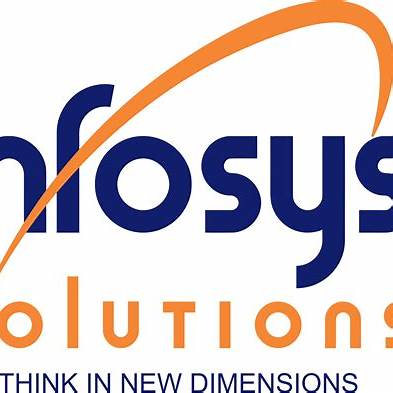Autism vs. ADHD: Understanding Attention and Hyperactivity Challenges
- 22 February 2025
As a parent, you’ve probably spent countless moments watching your child, wondering if their struggles with focus, bursts of energy, or those unique, repetitive habits are just part of growing up or signs of something deeper. It’s only natural to ask yourself:
“Is this just a phase, or is there something else my child needs?”
You might be feeling a mix of concern, curiosity, and perhaps even a little hesitation in seeking answers. You’re not alone in this, and taking the first step to understand this can make all the difference. Could it be Attention-Deficit/Hyperactivity Disorder (ADHD), Autism Spectrum Disorder (ASD), or possibly a bit of both? Let’s explore this together with compassion and clarity. Navigating through the world of neurodevelopmental disorders can be a journey filled with questions, concerns, and often, a sense of overwhelm.
I’m Dr. Sagnik Mukherjee, the Best Psychiatrist in Kolkata with years of experience in diagnosing and managing these conditions. In my practice, I have seen many parents grapple with understanding ADHD and ASD, two conditions with overlapping symptoms yet distinct in how they impact a child’s attention, behaviour, and social interactions. Through this article, I hope to shed some light on these two conditions, explain the similarities and differences, and share strategies that can help in managing attention and hyperactivity challenges in children with either or both of these diagnoses.
What are Autism and ADHD?
Before we dive into the specifics of attention and hyperactivity, let’s look at a brief overview of both conditions:
Autism Spectrum Disorder (ASD) is a neurodevelopmental condition that affects social interactions, and communication skills, and often leads to repetitive behaviours. Children with ASD may experience difficulty in understanding social cues, and expressing emotions, and may exhibit fixations on certain topics or objects.
Attention-Deficit/Hyperactivity Disorder (ADHD) is also a neurodevelopmental disorder, primarily impacting a person’s ability to focus, control impulses, and regulate their level of activity. Children with ADHD might struggle with maintaining attention on tasks, experience restlessness, and have difficulty with impulse control.
Similarities Between Autism and ADHD
At a glance, it’s easy to see why Autism and ADHD can be confusing for parents. Both can lead to challenges with attention, behaviour regulation, and sometimes, hyperactivity. However, it’s crucial to understand that these symptoms arise from different cognitive processes and manifest in unique ways.
Here are some overlapping characteristics that often lead to misdiagnosis or dual diagnosis:
- Difficulty in Maintaining Focus: Children with both conditions might struggle to concentrate, especially in structured environments like classrooms.
- Hyperactive Behaviour: A child with either ADHD or ASD might appear to be “on the go” constantly, unable to stay seated or still.
- Impulsivity: Impulse control issues can appear in both conditions. However, the reasons behind impulsive behaviour often differ.
Key Differences in Attention and Hyperactivity Challenges
Understanding these differences is crucial for accurate diagnosis and effective intervention. Let’s break down some of the main distinctions:
1. Attention Difficulties
In ADHD: The attention issues in ADHD stem from an inability to maintain focus on tasks, particularly ones that require prolonged concentration. A child with ADHD may get easily distracted, struggle with following instructions, or fail to complete tasks.
In ASD: Attention issues in autism tend to be selective. Autistic children may hyper-focus on topics or activities of interest, often excluding other tasks. Unlike ADHD, this type of attention isn’t necessarily due to distractibility but rather intense focus on particular interests.
2. Hyperactivity and Impulsivity
In ADHD: Hyperactivity in ADHD is often physical. Children may exhibit behaviours like fidgeting, tapping, excessive talking, or running around when it’s inappropriate. This behaviour typically has a restless quality and can fluctuate throughout the day.
In ASD: Hyperactivity in ASD is often linked to sensory sensitivities. Children with ASD might engage in repetitive behaviours like hand-flapping or rocking to self-regulate sensory input. This type of hyperactivity is often more ritualistic than impulsive.
Importance of Accurate Diagnosis
Given the similarities, it is not uncommon for children to be diagnosed with both ASD and ADHD. However, an accurate and precise diagnosis is vital for creating an effective support plan. As an Expert Psychiatrist with experience in differentiating between these conditions, I can’t emphasise enough the role of thorough assessments. Misdiagnosis can lead to ineffective treatment strategies and unnecessary stress for both the child and their family.
Accurate diagnosis ensures that each child receives the support they need, tailored to their specific challenges with attention and hyperactivity.
Strategies for Managing Attention and Hyperactivity
When it comes to managing these symptoms, a one-size-fits-all approach rarely works. Here are some effective strategies that I often recommend to parents and caregivers:
Behavioural Therapy:
This can be especially helpful for children with ADHD as it focuses on reinforcing positive behaviours and minimizing distractions. Structured environments and rewards for specific actions can significantly improve focus.
Occupational Therapy:
For children with ASD, occupational therapy often targets sensory sensitivities and repetitive behaviours, helping them build coping mechanisms that improve their ability to engage with tasks.
Parent Training and Support:
Parenting a child with ASD or ADHD can be challenging, and many parents benefit from training that helps them understand and support their child’s specific needs. I always advocate for a support network, including therapy sessions designed for caregivers.
Medication:
While not always necessary, medication can be a valuable tool for managing symptoms of ADHD. Under the guidance of a Professional Psychiatrist, medication can be adjusted to fit each child’s unique needs.
Educational Interventions:
Individualized learning plans (IEPs) are essential in ensuring that children with ASD or ADHD receive the academic support they need. Teachers trained in managing attention and hyperactivity challenges can be invaluable.
Mindfulness and Relaxation Techniques:
These techniques, including breathing exercises, yoga, and meditation, help children develop self-regulation skills, which can be beneficial in both ASD and ADHD.
Encouragement for Parents and Caregivers
It’s essential to remember that each child with ASD or ADHD is unique. They are not defined by their diagnoses, but rather by their potential, their abilities, and the love and support of those around them. With the right strategies and a professional approach, children with these conditions can lead fulfilling, engaged lives.
As a parent or caregiver, your journey may be difficult, but you don’t have to walk it alone. In my years as a Best Psychiatrist, I have witnessed the resilience of children and the strength of families who have come together to create nurturing environments for growth.
Contact Dr. Sagnik Mukherjee for Trusted Psychiatric Care and Guidance
Understanding and addressing attention and hyperactivity challenges in children with ASD and ADHD can be complex, but it’s a journey worth taking. Accurate diagnosis, effective strategies, and support can make a profound difference.
If you feel that your child is facing these challenges, or if you’re seeking expert guidance on managing ADHD and Autism, don’t hesitate to reach out to a trusted professiona




